
The Upanishads teach us all there is of religion. Kali worship is my special fad; you never heard me preach it, or read of my preaching it in India. I only preach what is good for universal humanity. If there is any curious method which applies entirely to me, I keep it a secret and there it ends. I must not explain to you what Kali worship is, as I never taught it to anybody.”1 What is that curiosity in the method of worshipping Mother Kali? This article examines this as briefly as possible.
There are two main approaches: 1) the Upanishadic ideas with all its logic and reasoning, and 2) the concept of the worship of the Divine Mother.
One of the main axioms in reasoning is that every effect must have a cause. So, the ‘intelligent’ ones try to explain everything based on cause and effect relationship. This position is entirely scientific. This has led people to find out the secrets of nature and formulate the laws of science through the power of reasoning — asking the question “why” of every event. These laws are believed to be infallible though occasionally the laws, based on further experimentation, analysis and interpretation of data, have been superseded by ‘better’ laws. There is a famous quote attributed to Arthur Koestler: “The progress of science is strewn, like an ancient desert trail, with the bleached skeleton of discarded theories which once seemed to possess eternal life.”
This story is from the {{IssueName}} edition of {{MagazineName}}.
Start your 7-day Magzter GOLD free trial to access thousands of curated premium stories, and 9,000+ magazines and newspapers.
Already a subscriber ? Sign In
This story is from the {{IssueName}} edition of {{MagazineName}}.
Start your 7-day Magzter GOLD free trial to access thousands of curated premium stories, and 9,000+ magazines and newspapers.
Already a subscriber? Sign In

Panchakroshi Parikrama of Varanasi
At the snow-capped Kailas, the Divine Lord Shiva was seated with Mother Parvati.

Gadai and the Monks
A fictional narrative based on incidents from the childhood of Sri Ramakrishna.

Chintayo momo maanosho Hori...
Sri Ramakrishna loved songs. There probably was no normal day when he did not sing some songs.
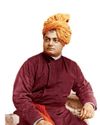
The Vedanta Vaccine
The world is still struggling under the impact of the pandemic due to Covid-19 for the last three years.
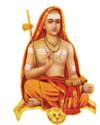
Chandrakirti's Chariot: Self in Madhyamaka Buddhism and Advaita Vedanta
The goal in Advaita Vedanta is the cessation of suffering and the attainment of true fulfillment. Suffering, according to this school, is due to ignorance of the true nature of the self and consequent erroneous identification with the body-mind.

Reminiscences of Sargachhi
Question: यद्यदाचरतत श्रेष्ठसतत्तदरेवरेतरो जनिः। ‘Whatever a superior person does, others do the same thing!’ (Gita 3:21) – What does this statement mean?
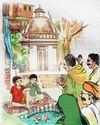
THE AUTUMN FESTIVAL
A fictional narrative based on incidents from the childhood of Sri Ramakrishna.
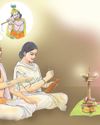
Bards of Guruvayur: Vilwamangalam II
Saints of India
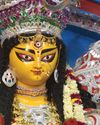
In the Universal Mother’s Divine Playground
Swami Vivekananda never taught the worship of Mother Kali. In a letter to Mary Hale he writes, “Kali worship is not a necessary step in any religion.
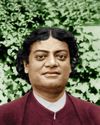
Swami Vivekananda: A Sportsman Par Excellence
In various books and articles, Swami Vivekananda has been called a spiritual leader, a prophet, a patriot, a social reformer, a philosopher, a yogi, a writer, an orator, an educationist, a musician, and so on.